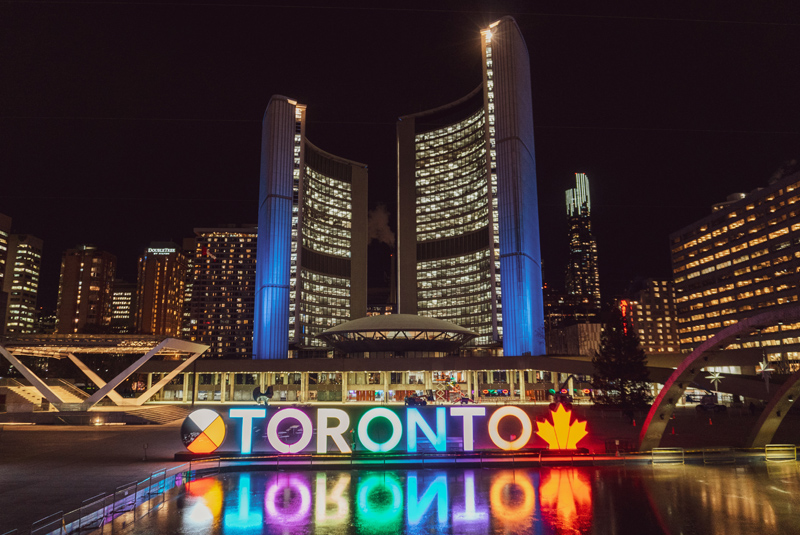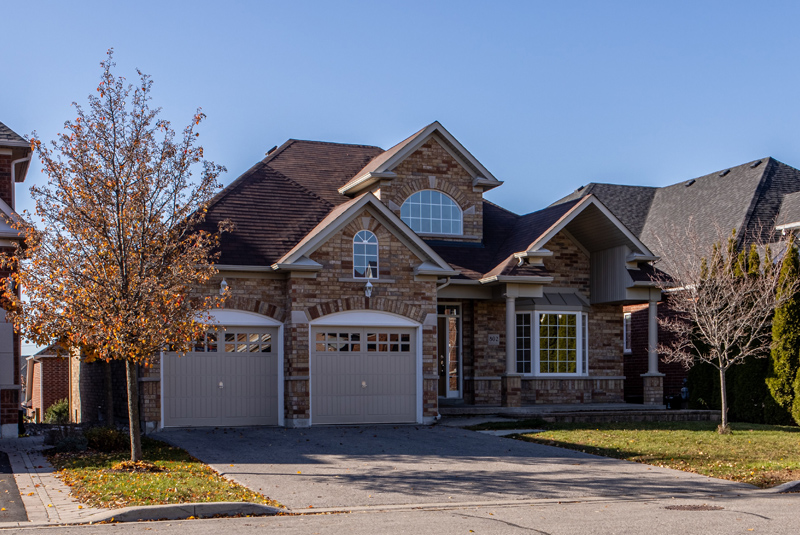September 24, 2021
The Hunt for Affordability in Toronto Area Real Estate
Share this article:

Real Estate remains a sound investment in the Greater Toronto area – in fact, maybe a bit too sound. Home prices continue to charge up relentlessly. The average price (that’s right, average!) in Toronto for a detached house now tops $1,000,000. That’s a leap of over 20% from just the year previous.
That said, there are still opportunities to be had, in snagging the property you’ve always dreamed about. So long as your dreams are tempered with a healthy dose of realism – and some cash in your pocket or bank account – there are houses in Toronto which could still count as “affordable”. Let’s take a tour of the real estate landscape around the city.

Least Affordable to Most Affordable – TO Neighbourhoods
We’ve likely all driven through Toronto’s most opulent neighbourhoods. They happen to be the most expensive ones too, such as the Bridle Path, Forest Hill, Moore Park, etc. Your entry point in these areas is $2,000,000, and that’s the extreme low end. There are almost always bargains to be found in posh neighbourhoods, actually, but the bargains in this range are simply out of reach for the average home buyer, much less the first-time buyer.
Once these areas are crossed off the list, the affordability factor improves, sometimes quite dramatically. In up-and-coming and revitalized neighbourhoods, like Regent Park, Moss Park, and Cabbage town, the average home price plummets to under $800,000. Keep in mind that these inner city areas feature much smaller properties than the suburbs, and there will also be lots of condominiums, townhouses and semis. If a high density setting is your preference, these are areas to check out, along with the central area south of Bloor St., from Liberty Village over to Church St.
The outlying areas of Toronto proper, such as Scarborough, Rexdale, and Downsview are at a similar price point as the inner city, or just slightly more – the $800,000+ range. These communities come with the benefit of more generous lot sizes. If actual backyard space and maybe even a detached garage is important to you, they would be good places to look. The trade-off of these locations is the longer traveling distance into the city, if you are a commuter.
The bottom line in Toronto right now, and perhaps for the foreseeable future, is that real estate is overvalued. Simply put, if you really want to live within the bounds of the Six, you are likely going to pay a lot, to the point of over-paying for your dream home. There appears to be nothing on the horizon which indicates this will change anytime soon.

Outside the Six
Into the 905 area code, which surrounds the city of Toronto, the situation improves, albeit marginally. Taking a look at demand areas, such as Peel Region, which includes both Mississauga and Brampton, house prices offer little let-up. There continues to be an influx into these areas, particularly from immigrants, which keeps real estate activity high, and puts upward pressure on prices. Average home prices in Mississauga, Brampton and Caledon have all topped $1,000,000 of late. These areas are also pursuing aggressive transit expansion plans alongside the City of Toronto, which makes them still more attractive. In Caledon specifically, there is less frantic activity, but the prices are higher than average, due to features such as larger lot sizes compared to its Peel Region neighbours.
To the east, in Durham Region, which includes Pickering, Ajax, Whitby, and Oshawa, things are not much different; $700,000 to $800,000 at the low end and into the million-plus range. The outlying area around Uxbridge offers more opulence in the $1,200,000-and-up range. Oshawa remains among the most affordable in Durham, again, with the caveat of an increased commute time into the city.
York Region has seen tremendous growth and development over the last number of years, and real estate pricing reflects this continued demand. Average real estate prices here rarely dip below $1,000,000, currently. The outlying community of Georgina, a good 60-70 km away from downtown, offers some small relief in pricing, as a trade-off for the distance to get to it.

The Home Price to Income Ratio
It’s a good idea to determine what you are actually up against financially before you dive into house showings around Toronto. The home price to income ratio is a formula used to determine affordability in real estate. It’s a pretty simple calculation: you take a home price and divide it by your household annual income.
As an example, if the house you are looking at costs a million dollars, and you make a hundred thousand annually, the home to price ratio is 10. It also means if you poured every cent you had into your mortgage, it would be paid off in ten years, which is highly unrealistic; but it is a way to gauge what a house will cost over the long term, and is useful for determining, for example, a neighbourhood’s affordability, based on its average or median selling price.
It’s also a great reality check for aspiring home buyers. The numbers keep getting bigger all the time, meaning that it will take longer and longer to pay off the mortgage. The home price to income ratio exercise can be a real eye opener.

Speaking of Price – the Outlying Areas in Ontario
We’ve had a look now at Toronto proper and the surrounding 905 area code. Continued upward pressure on real estate pricing means that for many, the possibility of owning a home in the GTA may simply be out of reach. Unless something changes in the market, or you fall into a pile of cash, home ownership, particularly for a first-time buyer, is getting less and less attainable. Gone are the days when an individual or couple could snag a cheap starter home in the city, with little down payment, build equity, and move up the scale in opulence, comfort and amenities. But that doesn’t necessarily mean you are out of the real estate game altogether; the rest of the province remains. Although the outlying areas in Ontario have not been unaffected by surging home prices, there is considerable improvement in the Home Price to Income Ratio, the further you get from the GTA. Let’s take a little peek around the province.
Here is a recent ranking of the ten most affordable “large cities” in Ontario (population 100,000+):
Windsor
London
Barrie
Kanata (Ottawa suburb)
Guelph
Hamilton
St. Catharines
Waterloo
Kingston
Kitchener
Notice that some of these localities on this list are, in fact, not that severe a commute into the city of Toronto. Barrie, for example, has long been a commuter town into TO; so has Hamilton. Many of these locations are currently in the midst of constructing transit infrastructure to and from the Big Smoke, as mentioned earlier.
They are also working on improving connections between and amongst themselves. The out-of-reach-ness of GTA real estate may make this perhaps the only viable alternative for those seeking an entry point into home ownership, while retaining employment in the Toronto area.
Many of these locations, such as Kitchener, Waterloo, and Guelph, are geographically linked among themselves, with their own employment hubs, attractions and amenities. Although it may represent a shift in mindset, a move away from 416-905 area codes may also be another way into the real estate market for the aspiring homeowner.
Certainly the price pressure will come down. The move away from the rat-race of Toronto and its immediate suburbs may also be just the lifestyle change a couple or young family, or for that matter, a retiree, could embrace.

Getting into the Real Estate Game in Toronto and Surrounding
Once you’ve completed your soul searching and the hard math, and determined your affordability zone, then it’s time to get serious about house searching. Here are the steps you’ll need to consider when you’re ready to make the leap:
Mortgage prequalification – no real estate agent will be thrilled to take you around if you cannot show that you’ll be able to pay your monthly mortgage bill. Your banker or lender will sit down with you and make the calculations that determine what you can afford. This is mainly based on your annual income, and the amount of down payment you have ready.
Wishlist for your home – before starting to make appointments to look at houses, it’s a good idea to think ahead about what you are seeking in a house; ranking features and amenities as:
- Must-have
- Nice-to-have
- Knock-out factors (can’t-have)
There’s no point looking at a house, for example, with no driveway and garage, if you have two cars, and plan to commute by car to and from work. That’s a knock-out. A nice-to-have may be something like a spare bedroom or den, or finished basement – not essential, but definitely nice to have. The list goes on.
Finding an agent – there are so many to choose from. But you will learn it’s very important to find a rep who you like and trust, because in your search for a home, you will be dealing with him or her a lot. At the same time, it’s a good idea to source out both the lender and lawyer you want to work with; they will be instrumental in handling the actual transaction on your behalf.
The house hunt – simply driving to a neighbourhood you like and noting For Sale signs won’t cut it. Your real estate agent can be of tremendous assistance in identifying properties for you; they have the inside track, and the big database from Realtor.ca at their fingertips. They are also alerted to new listings daily. So it’s probably a good idea to work in tandem with your agent – they look, while you also look at published listings yourself. That way, nothing is missed, plus, you can ponder alternative neighbourhoods or locations on your own.

Making an offer – this step can be tricky, particularly in today’s era of bidding wars and competing offers. Fasten your seatbelt, as it can be a wild ride, and you’ll really need to count on your agent to go to bat for you, both in preparing all the necessary paperwork and staying on your side in a potential transaction.
Conditions and deposits – these are the financial nuts and bolts of your offer. Here’s where all the money stuff gets covered, including your deposit; alongside, all other conditions need to be met and gone over by your lawyer, before your offer becomes “firm”.
Closing – the date upon which the property actually becomes yours. Both your lawyer and lending institution are heavily involved to make this happen.
There’s your snapshot of the real estate climate in the Greater Toronto Area. It’s challenging, and it’s expensive. Perhaps, at the end of the day, it won’t even be in the confines of the city, or even the immediate surrounding areas. But, if you’ve worked hard, saved aggressively for a reasonable down payment, and become creative if necessary regarding location, it can still be in reach for you.
If you’re ready to learn more about property buying, contact us today!
Get more homeowner tips
Subscribe to get more homeowner tips and advice delivered right to your inbox.
More Great Reads
- First-Time Buyers Guide to Toronto’s Hottest Freehold Neighborhoods Like Riverdale and Roncesvalles in Early 2026
- Buying Your First Home in Toronto’s 2026 Buyer’s Market: Step-by-Step Guide
- Is 2026 the Best Time for First-Time Buyers to Enter Toronto’s Housing Market?
- Why 2026 is the Perfect Entry Point for First-Time Buyers in Toronto’s Cooling Market
- Why 2026 is the Perfect Time for First-Time Buyers to Enter Toronto’s Cooling Housing Market


